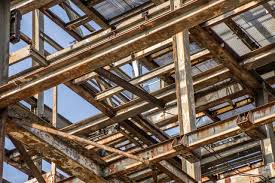Dec . 01, 2024 08:49 Back to list
Innovative Formwork Solutions from Leading Advanced Manufacturers for Construction Projects
The Evolution of Advanced Formwork Manufacturers Revolutionizing Construction Processes
In the construction industry, formwork is a critical component that provides temporary or permanent support for freshly poured concrete until it sets. Over the years, the formwork industry has evolved significantly, driven by technological advancements and the increasing demand for efficient building processes. Advanced formwork manufacturers are at the forefront of this evolution, offering innovative solutions that enhance construction efficiency, safety, and overall project quality.
Understanding Advanced Formwork Systems
Advanced formwork systems are designed to overcome traditional challenges associated with concrete construction, including time consumption, labor costs, and material waste. These systems leverage modern materials like engineered wood, aluminum, and high-strength plastics, resulting in lighter, more durable, and reusable formwork solutions. Manufacturers focus on developing systems that can be easily assembled and dismantled, reducing the labor-intensive processes that often lead to delays and increased expenses.
One of the most prominent innovations in formwork technology is pre-fabricated modular systems. These systems allow for quicker assembly on-site, as components are manufactured offsite under controlled conditions. This not only speeds up the construction timeline but also minimizes the risks associated with on-site errors. Additionally, the modular design ensures that components can be reused across multiple projects, further driving down costs and waste.
The Role of Technology in Formwork Manufacturing
The integration of technology into formwork solutions has been transformative. Advanced formwork manufacturers utilize Building Information Modeling (BIM) to design and plan formwork systems with precise specifications. BIM allows for detailed visualization of projects, improving coordination between architects, engineers, and contractors. With accurate data, manufacturers can produce formwork that fits the unique contours of a structure, resulting in fewer alterations and a smoother construction process.
Furthermore, manufacturers are increasingly adopting automation and robotics in their production lines. Automated cutting, welding, and assembly processes not only enhance efficiency but also improve the quality of the products. By leveraging technology, advanced formwork manufacturers can ensure consistency and minimize human error, which is crucial in achieving the structural integrity required for safe construction.
advance formwork manufacturer

Benefits of Advanced Formwork Solutions
The advantages of advanced formwork systems extend beyond just efficiency and cost savings. Enhanced safety is a paramount concern in construction, and modern formwork solutions contribute significantly to minimizing hazards. Lighter materials reduce the risk of injuries associated with heavy lifting, while improved designs help prevent accidents during assembly and disassembly.
Moreover, advanced formwork can be tailored to meet the specific needs of various construction projects. Whether building residential homes, commercial towers, or complex infrastructures like bridges and tunnels, manufacturers can customize their offerings to accommodate unique architectural designs and load requirements. This flexibility not only benefits the construction process but also enables architects and designers to push the boundaries of creativity.
Environmental Considerations
In today’s construction landscape, sustainability is a crucial focus. Advanced formwork manufacturers are responding to environmental challenges by incorporating eco-friendly practices into their production processes. Many companies are investing in recyclable materials and implementing methods that reduce waste during manufacturing. Furthermore, reusable formwork systems contribute to the circular economy by allowing multiple uses across projects, significantly lowering the carbon footprint associated with traditional formwork solutions.
Conclusion
The role of advanced formwork manufacturers is pivotal in shaping the future of the construction industry. Their commitment to innovation, efficiency, and sustainability enables them to navigate the complexities of modern construction while meeting the rising demands for speed and quality. As technology continues to evolve, these manufacturers are poised to redefine the standards of formwork, paving the way for a more efficient, safer, and environmentally friendly construction process. Construction firms that leverage the capabilities of advanced formwork systems will not only enhance their project outcomes but will also contribute to the broader goal of sustainable development in the built environment.
-
High-Quality U Head Jack Scaffolding – Reliable Scaffolding Jack Head Manufacturer & Factory
NewsJul.08,2025
-
High-Quality I Beam H20 Leading Timber Beam H20 Material Factory, Exporters & Manufacturers
NewsJul.08,2025
-
High-Quality Powder Coating Steel Formwork - Durable & Corrosion Resistant Solutions
NewsJul.07,2025
-
Inclined Column Formwork Supplier – Durable & Precise Solutions for Unique Structures
NewsJul.07,2025
-
High-Quality Water Stop Solutions Trusted Water Stop Company & Suppliers
NewsJul.07,2025
-
High-Quality Formwork Material Supplier Reliable Manufacturer & Factory Solutions
NewsJul.06,2025